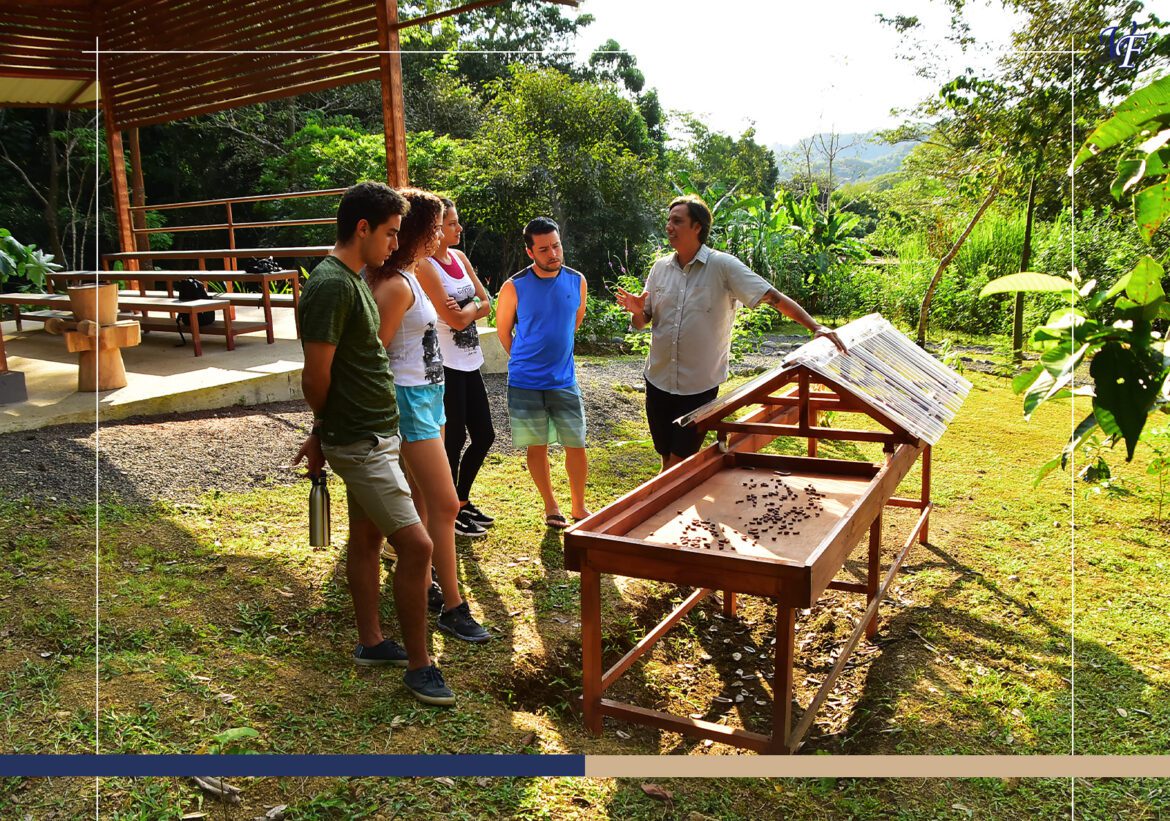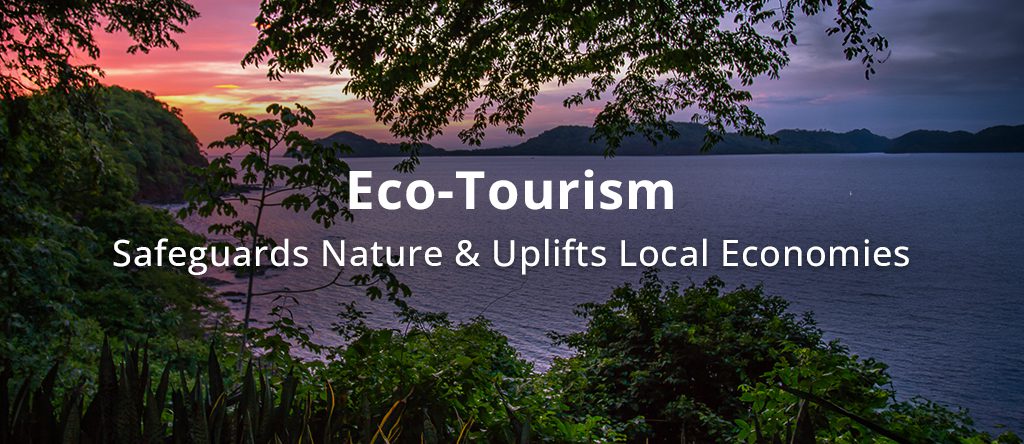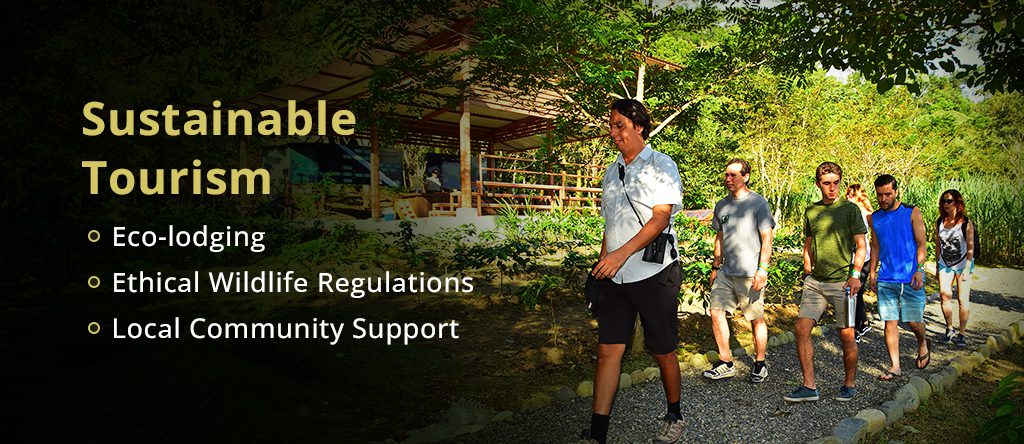Costa Rica

Why is Costa Rica considered a world leader in ecotourism and sustainability? This tiny nation in Central America has won accolades from across the globe for its dedication to conservation and the promotion of ecotourism.
Many years ago, Costa Rica decided to head toward turning into a light for journeying sustainably. Initially, the nation had already promised environmental protection and introduced new regulations that have made its future brighter. Others currently see Costa Rica as a standard because it shows that economic development can happen without destroying nature.

The Early Stage of Ecotourism
Costa Rica showed an early commitment to solving Costa Rica’s environmental concerns related to conservation and preservation. The country began to appreciate the significance of conserving its immense biodiversity in the 1970s; due to this early dedication, several essential government policies aimed at sustainability practices.
The introduction of the Payment for Environmental Services (PES) program in the 1990s is regarded as a critical move in conserving Costa Rica environment. It rewards forest owners who keep their land intact by paying them for the ecological goods it offers. These include, among others, water cleansing, carbon dioxide uptake, and maintenance of flora and fauna diversity. As a result, the PES has played a significant role in halting deforestation rates while encouraging tree-planting activities throughout the land.
Additionally, the government of Costa Rica has implemented countless policies to protect its natural resources and promote sustainable development. Such efforts have led to an outstanding equilibrium between economic expansion and environmental conservation in the nation.
Conservation Efforts in Costa Rica
Costa Rica has made significant advancements in conservation by taking a leading position in various global campaigns to safeguard its own natural legacy.
- Reversing Deforestation: Costa Rica was troubled by constant deforestation in the past, but strong adherence to policies combined with community participation has led to the end of this destructive trend. Initially, the 1980s witnessed a reduced forest cover percentage volume of around 21%, slightly over 50%, thus confirming the country’s commitment to restoring its natural landscapes.
- Biodiversity Protection: More than 5% of animals and plants call Costa Rica their home. 25% of the country’s land is covered under national parks and reserves, established to protect the natural habitats where exotic wildlife and plants thrive.
- Payment for Environmental Services (PES): The PES project has been vital in conserving tropical rainforests. The project offers financial incentives to land owners to protect and restore wooded land, yielding carbon storage and ecosystem preservation.
- Marine Conservation: Costa Rica is a prominent figure in marine life conservation, enacting mechanisms that safeguard various species. The country has established marine protected areas and implemented sustainable fishing practices to ensure the health of its ocean ecosystems.
- Wildlife Corridors: To improve habitat connectivity, Costa Rica has created wildlife corridors that connect isolated protected areas. These corridors enable animals to travel from one habitat to another without restriction and in full security. This leads to gene mixing among species, thereby maintaining healthy ecosystems.
Sustainable Tourism Practices in Costa Rica
Costa Rica has piloted several sustainable tourism practices that place it at the forefront of ecotourism.
- Eco-lodging Recreational Facilities: Most Costa Rican lodges, hotels, resorts, and villas incorporate sustainable design. They use solar energy, follow water conservation practices, and use eco-friendly construction supplies. Therefore, tourists can comfortably spend their time without leaving any negative impact on the environment.
- Green Certifications: The country has a solid certification program called the Certification for Sustainable Tourism (CST). This program rates tourism firms according to how they operate sustainably, which encourages their eco-friendly practices. CST businesses are recognized for their consistent practices to promote Costa Rica sustainability.
- Sustainable Tour Operators: The tour operators prioritize sustainable tourism. By providing eco-tours that promote Costa Rica conservation awareness and reduce environmental footprints, the companies ensure that tourist activities, such as hiking, bird watching, or kayaking, are carried out in environmentally sensitive ways.
- Community-Based Tourism: Costa Rica’s sustainable tourism model would not be complete without community-based tourism. It embraces the locals in its tourism ventures, who give guests a taste of their real culture. Hence, the locals support the growth of their economy through trade with outsiders and enhance cultural diversity.
- Educational Programs: Many educational programs aim to teach visitors about sustainability and preservation. These programs comprise guided walks, working groups, training sessions, workshops, and interactive displays that emphasize the necessity and benefits of protecting natural resources.

Ecotourism Attractions in Costa Rica
Costa Rica has various ecotourism attractions which are attractive to visitors globally.
- Rainforests and Biodiversity: The rich rainforests in the nation are full of animals and rare plants. These rainforest tours, canopy tours, and wildlife tours allow tourists to traverse these flourishing habitats. During these tours, one can have a first-hand experience of the amazing range of animal and plant species.
- Adventure and Nature Activities: Costa Rica offers diverse adventure activities like ziplining, white-water rafting, and volcano trekking for adventure enthusiasts. These activities are meant to give an exciting experience while considering the surrounding ecosystem, hence not destroying its natural beauty.
- Wildlife Viewing: This is a beautiful place for those who like animals. Exotic species, like howler monkeys, sloths, and colorful birds, are found within the national parks and reserves. Koalas or kangaroos are rarely seen here because they don’t belong to low-temperature spots where forests always remain wet. This is why responsible wildlife-watching tours have been developed in this tropical nation.
- Cultural Tours: Cultural experiences are also part of ecological tourism in Costa Rica. One of the major attractions of these tours is engaging with residents, participating in their cultural events, and learning about traditional practices from them.
- Sustainable Beaches: The gravely pristine coastlines are a main attraction point for travelers. With clear, sustainable actions, like the Blue Flag certification, these beaches are, in a certain manner, at the top of the list. You will absolutely love the coast, that is in no doubt.
Impact of Ecotourism in Costa Rica
Ecotourism in Costa Rica has profoundly impacted various aspects of the country:
- Economic Impact: Ecotourism drives significant economic growth, generating revenue and creating jobs. It supports local communities by boosting small businesses and improving living standards.
- Environmental Impact: Ecotourism plays a key role in conserving natural habitats. It promotes low-impact activities and conservation practices, helping visitors reduce their carbon footprint. Financial and social support from ecotourism ensures the preservation of protected areas and biodiversity.
- Social Impact: Ecotourism fosters positive changes in local communities, offering educational opportunities and raising conservation awareness. It empowers locals to preserve their heritage, instilling pride and stewardship.
- Educational Impact: Tourists gain a deeper understanding of sustainability and conservation, often adopting more sustainable practices. This educational experience spreads environmental consciousness globally.
- Global Influence: Costa Rica’s success in ecotourism influences sustainable tourism practices worldwide, inspiring international efforts towards responsible travel models.
Sustainable Practices Followed at Villa Firenze
Luxury and environmental conservation go hand in hand at Villa Firenze. This luxury villa rental in Costa Rica uses solar energy, significantly reducing its environmental impact. Rainwater harvesting and efficient irrigation help to save water, thus maintaining green spaces. We reduce waste production by utilizing recycling procedures and decomposable strategies, thereby promoting environmental conservation.
Villa Firenze embraces all these techniques so guests can enjoy comfort while contributing to environmental conservation and sustainable tourism and offering eco-luxury experiences.

Conclusion
Costa Rica is an excellent example of how a country can achieve economic growth while still protecting its environment. Due to its early dedication, government policies, and sound ecological principles, Costa Rica has become one of the world’s top destinations for ecotourism. Its efforts in conservation, tourism, and new undertakings have gone a long way in ensuring the preservation of this rich nature, improving its economy, and benefiting society at large.
As travelers, you can support these actions by traveling responsibly and involving yourself in sustainable practices. Adopt ecotourism principles and positively influence the world.










